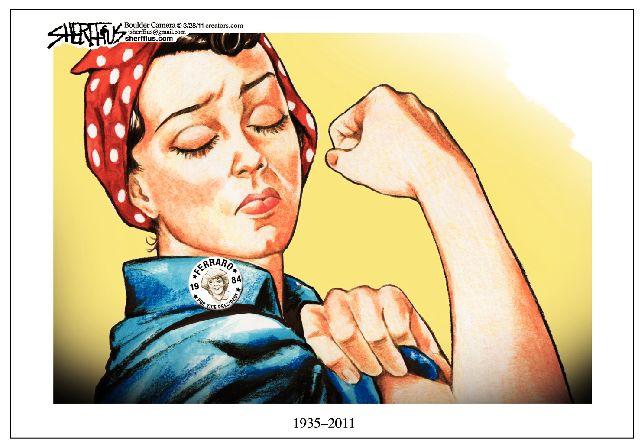Methodist distribution center in Chatham sends relief to Japan
DISASTER AID | Holly Dillemuth
Five days a week volunteers bustle about the kitchen and heated warehouse inside the Midwest Mission Distribution Center in Chatham. Many are retired and some come from as far as North Dakota. All volunteers come to serve.
The distribution center is one of seven distribution warehouses connected with the United Methodist Committee on Relief, an effort organized by the United Methodist Church, to send needed supplies to disaster areas around the world. The distribution center includes two warehouses, a dormitory, wood shop and kitchen area for volunteers.
K Roemmich, 70, a volunteer from Devils Lake, N.D., says that it’s a “God thing” that supplies are sent to help those in need all around the world. The faith-based organization descibes the Chatham operation as a “mission in motion,” that distributes basic items to thousands locally, nationally and across the globe.
The 18,000-square-foot distribution center holds shelves lined with buckets, boxes of school supplies, health care items, and wheeled chairs, desks and bicycles.
Calls flooded the center after the March 11 earthquake and tsunami in Japan, with people wondering how the center would help. But for Pat Wright, the executive director of the Midwest Mission Distribution Center, it wasn’t how to help but whether Japan would accept donations from other countries. Before the center was given the green light by the U.S. Navy to start sending “health kits” to Japan, pallets of boxed hygiene products already lined the warehouse shelves, awaiting shipment to those in need.
“We always try to have all of our items on the shelf ready to go,” says Wright.
“Just to have the basics is nice, no matter what happens.They might have lost everything, they might not be able to have a lot of other things, but at least if they got that kit they could be able to clean up.”
Roemmich was among many who helped stock health kits with soap, toothpaste, toothbrushes and bandages that will be sent to earthquake survivors. Japan has so far only asked for boxes of hygiene products and blankets.
The U.S. Navy will soon distribute the 17,000 health kits to survivors in Sendai, Japan, and surrounding areas. The shipment of supplies is one of many that the center plans to send to survivors of Japan’s earthquake.
As requested by Japanese officials, each package holds a new bar of soap, nail file or clippers, toothbrush, toothpaste, a wash cloth, hand towel, bandages and a comb. The average cost to make a health kit is about $12.
The items are wrapped in hand towels and stored in a one-gallon zip plastic bag.
“Here we always try and pray over them, and pray that the people getting them can feel the love that went into making them,” she says. “The person getting them, you would hope they would have that same feeling.”
The distribution center also collects sewing machines and bicycles to repair and then send to developing countries. Volunteers are also collecting children’s hospital gowns and school desks for Haiti. A new project is in the works to collect and distribute personal energy transportation carts, a three-wheeled cart, to those who have lost use of their legs.
“We’ve got all kinds of stuff going on,” Wright says.
The center is open from 8:30 a.m. to 4 p.m., Monday through Friday, and still needs daytime volunteers. Supplies are always needed to fill the shelves that line the inside of the facility. Hand towels are especially in high demand.
Contact Holly Dillemuth at [email protected].
